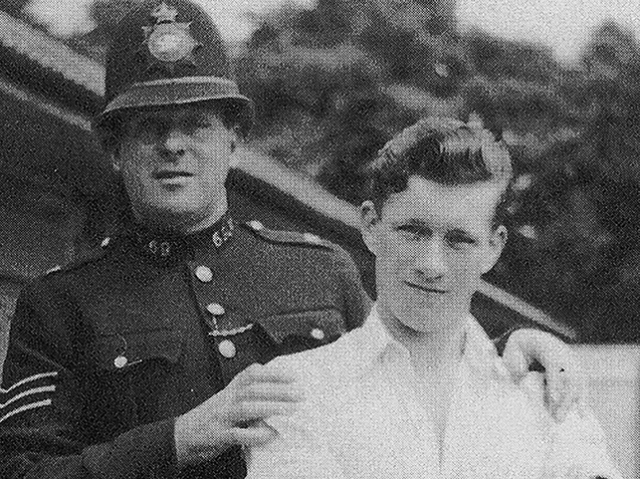Real Lives: Harry Daley
Historian feature

Harry Daley: the extraordinary policeman
Our series ‘Real Lives’ seeks to put the story of the ordinary person into our great historical narrative. We are all part of the rich fabric of the communities in which we live and we are affected to greater and lesser degrees by the big events that happen on a daily basis. Sometimes we might even play a part in the big events, although our names are not recorded, while on other occasions we are witnesses to events and times which we would now consider remarkable. Sometimes our regular lives are the perfect illustration of how people live at any given time – but all our lives matter and we want to celebrate some of those lives here. If you have any people that you think might also fit this category and would like to write about them, please do contact: martin.hoare@history.org.uk
Hardly any documentation exists about gay police officers who served before the 1967 Sexual Offences Act partially decriminalised homosexuality. An exception is Sergeant Harry Daley’s autobiography, This Small Cloud, published posthumously in 1986. Humorous, endearing and self-deprecatory, Daley acknowledged himself as a champion of the underdog and the oppressed. His ruthless self-improvement led to his book, a rare record of working-class gay experience. In it, Daley (1901–71) is refreshingly indiscreet about his homosexuality and life as a London ‘bobby on the beat’. Regrettably he doesn’t discuss the love affair he had with the celebrated novelist E. M. Forster (1879-1970). In fact, because Daley fell out with Forster, he avoids mentioning the friends he made in London’s literary and artistic world of the famous Bloomsbury Group in the 1930s.
Daley was born in Lowestoft, Suffolk in 1901 into a close-knit, working-class family. His father was the skipper of a fishing smack who was lost at sea in the owestoft shipping disaster of 1911. Daley’s older brother served in the First World War but was tragically killed in action just a few days before the war ended. When the family moved to Dorking in 1916, Daley worked as a grocery delivery boy but craved the bright lights of London. He spent his weekends in the metropolis, exploring theatres, cinemas, art galleries, and concert halls. He was 24 when he decided to join the Metropolitan Police and make London his permanent home...
This resource is FREE for Historian HA Members.
HA Members can sign in to access this content or you can Join the HA if you are not already a member.

